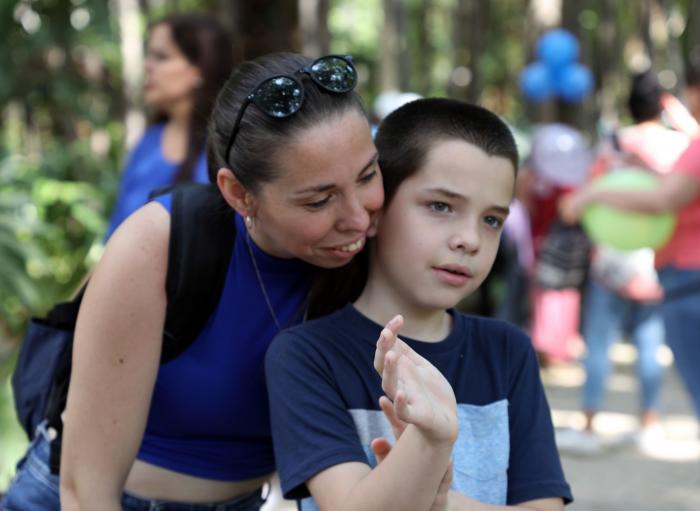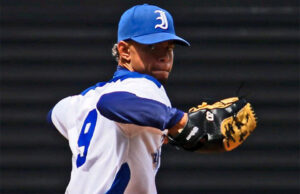It wasn’t until the day they received the definitive diagnosis that Yohania and her husband were overcome with a kind of momentary calm: «The doctors told us that the boy had primary atypical autism, and from then on, from the age of four, the family dynamics changed around him,» she says.
Yohania explains that in the search for resources so that Marcos, her son, could «get ahead», they had to adjust his time, teach him how to sit – vital for a person with autism -, show him positive behaviours to imitate, as well as instruct him on how to coexist in other social spaces.
For her, raising a child with autism has meant learning together with him the ups and downs of life, again: «When you become a mother, many times you dream of your son or daughter, as a shrewd, brave, successful person…; but this shows a quite different perspective, with which you enjoy the small achievements that usually go unnoticed».
Although the diagnosis of Autism Spectrum Disorder (ASD) is lifelong, people with ASD can achieve a high degree of functionality. Marcos is proof of this.
Now 22 years old, he works as a kitchen assistant at the Adelaida Piñeiro special school, and although he describes his beginning as a path of uncertainty, with the help of teachers, psycho-pedagogues and medical staff, he has progressed.
A WAY OF BEING
In a dialogue with Granma, Tania Peón Valdés, head of the National Group of Child Psychiatry of the Ministry of Public Health, said that ASD is a condition of neurobiological origin that affects the configuration of the nervous system and brain functioning, as well as the areas of communication and social interaction, and the flexibility of behaviour and thought.
In the country, the comprehensive approach to children and their families is carried out in a combined manner in public health and school settings, added Tania Peón.
Among the specific services offered, she explained, are occupational therapy for the development of skills, physical therapy, alternative therapies with games, animals… and others, depending on the needs of the patient and the resources of each locality.
For Elsa Escalona Basulto, director of the Cheché Alfonso school, the fact that there are schools specialised in dealing with this type of disorder represents a path of inclusion that contributes to the child being trained for life.
The school, which has 52 students between the ages of seven and 18, has several educational attention projects, based on an individual design from the established curricular programmes. «But adaptations are made, depending on the help each child needs.
«The aim is not to achieve a job link, as few manage to get a job, but we want the child and adolescent to obtain the necessary skills for their quality of life.
Among the various activities, the training of family members stands out, involving them in educational decisions, which has led to improvement in comprehensive care.
EMBRACING NEURODIVERSITY
As a legitimate form of human experience, Tania Peón believes, neurodivergent people should be included, because they are often «stigmatised and discriminated against».
Believing in them is one of Yohania’s recommendations: «My son is different, but everyone should accept him as such. I feel that I grew as a human being with him, and he is like a teacher of life.




